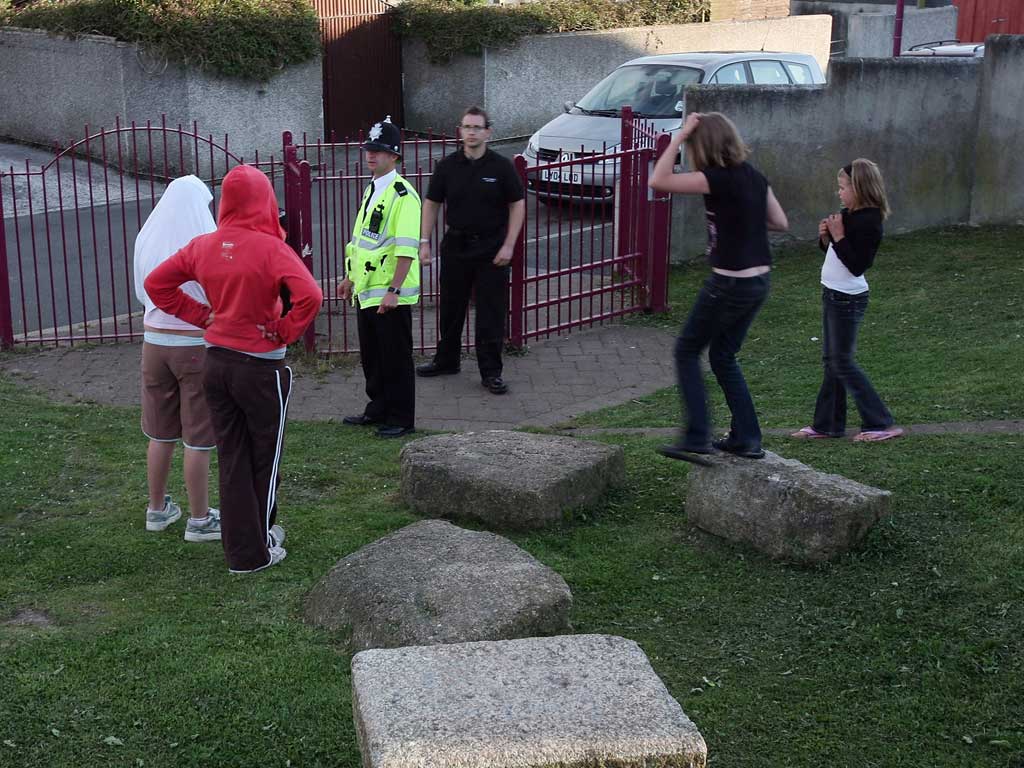The 16-year-olds who have committed 86 crimes each
A ground-breaking British study finds that 4 per cent are responsible for nearly half of youth crime. The research could have profound implications for police and policy-makers

A tiny, hard core of amoral teenagers is responsible for the majority of juvenile crimes, according to a ground-breaking study from the University of Cambridge.
A delinquent minority will commit an average of 86 crimes each by the age of 16, with less than 4 per cent responsible for nearly half of all youth crime. A lack of a sense of morality – rather than the opportunity to commit crime or social background – was found to be the most important factor in teenagers breaking the law. The 16 per cent who admitted having the weakest moral sense and self-control were responsible for 60 per cent of all the recorded crimes.
Cambridge researchers studied 700 teenagers over five years in Peterborough, chosen as a bellwether location for its average size, crime level and social make-up. From the age of 12 to 16 youngsters were asked about their attitudes to lawlessness and asked what criminal things they had done. Their answers were cross-checked with police records. Crime occurred when teenagers with little sense of right and wrong were in areas where people were unlikely to intervene – primarily city centres or run-down housing estates.
The findings could have profound implications for policing and youth crime policy. Last year the number of under-18s in custody in England and Wales averaged more than 2,000, and youth offending remains a source of political controversy. Nationally, the latest crime figures show that under-17s are responsible for 23 per cent of police recorded crime – more than a million crimes.
The study suggests that most of those crimes will be committed by a tiny minority of young people. A typical example of this lawless group is Nathaniel Moffett, a 16-year-old from Bristol who was jailed for five years last February after committing a string of armed robberies.
In a single court case Moffett admitted five robberies, three attempted robberies and three charges of possessing a bladed article. He led an older accomplice in a series of attacks on women and children last year, including threatening a 14-year-old with a rusty blade to get his mobile phone and 21p in change.
He was caught after punching a pregnant woman in the stomach to steal her wallet while her five-year-old daughter looked on. He wrote on his Facebook page: "I'm nothing but a bully that can't hit a man cus I no I will get banged [beaten] so I have to hit girls."
The research also offers some insights into last year's riots, notably on the question why some young people went on a lawless rampage while others did not. Teenagers who avoided crime did so not because they feared the consequences or lacked the chance, but because they saw it as wrong. The research, which is the most comprehensive study of youth crime and its causes conducted in Europe, found that a third of teenagers did nothing wrong at all over five years.
Professor Per-Olof Wikstrom, who led the Cambridge study, said: "Many young people are 'crime averse' and simply don't perceive crime as a possible course of action ... The idea that opportunity makes the thief – that young people will inevitably commit crime in certain environments – runs counter to our findings."
He added that policy-makers should put an emphasis on teaching young people moral boundaries. "We need to focus on developing policies that affect children and young people's moral education and cognitive nurturing – which aids the development of greater self-control."
Camila Batmanghelidjh, the founder of Kids Company, cautioned against branding some young people as amoral. She said: "Society is lecturing children and young people about how well behaved they should be but it's not behaving in a way that warrants respect. It's a given that it's a good thing to teach right from wrong, but really where children observe it the most is in experience: it's 'have you looked after me?' and 'do you do what you preach?'"
One 14-year-old boy who attends a Kids Company youth club in London said: "I got caught stealing and was given a second chance. That's when I realised it was wrong. Nobody told me I shouldn't do it and my mum still doesn't know I did it."
Graham Beech, the director of the crime reduction charity Nacro, said: "In my view the key to preventing crime by the small number of young people who are most likely to get entrenched in crime is to get in early, instil positive attitudes and teach them how to solve their everyday problems in a better way."
But academics around the world have heralded the study as a breakthrough in understanding why teenagers break the law. Professor Michael Gottfredson at the University of California described it as "among the most significant works in criminology in decades", while Professor Robert Sampson at Harvard University said the research was a "breakthrough that deserves a wide readership".
